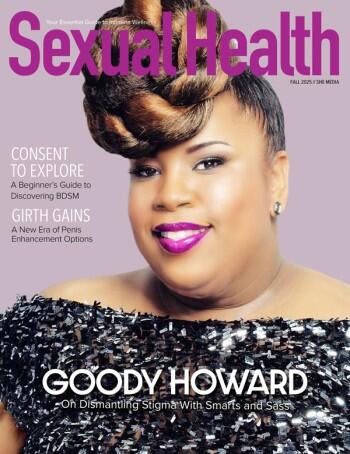We’re not selling refrigerators here. We sell orgasms, sex, intimacy — and when your product is pleasure, there’s only so much business metrics can tell you. That’s why it is crucial for our industry that the personal, subjective and sometimes hard-to-define relationships we have with our bodies should not be overlooked or devalued in the drive for metric-based marketing.
About two and half years ago, I was pulled into a customer segmentation project at one of the biggest pleasure brands in the industry. We had paid some sprawling data agency a quarter of a million dollars to give us a solid, data-backed representation of our target customers, segmented into categories so that we could, in theory, figure out how to sell to them more effectively.
I watched the progress of the project with growing unease. I’d been through exactly the same process at two other major brands, and had always been unimpressed by the results — though I had never seen one this expensive.
When the report came in after six months of research, I was stunned. “Young people like colorful sex toys,” it said. “Politically conservative customers are less likely to be sexually adventurous.” “Single people buy sex toys for solo use.”
Yeah. Great. Thanks.
All of that money, all of that time, all of those ingenious algorithms and people working to produce a report that I could have turned out with the same quality over a rainy weekend. We paid six figures just to be told less than we already knew from experience and intuition.
Here is what these experiences have taught me:
Embrace the Intangible
Metrics like these are doubtless useful in other consumer goods industries. For example, Bosch might find it useful to know that the primary customer for refrigerators is a 40-ish straight married couple with young kids. But even though you can physically hold a sex toy in your hand, we are really selling something far more abstract, even conceptual. Our customers’ relationship with pleasure products is informed by much more than utility and specific features.
The very earliest recorded artifact with a sexual purpose is a 30,000-year-old, 7-inch phallic object hewn from bluestone, found in Germany. This object has been polished smooth, likely for masturbatory purposes, and various anatomical details have been scratched into the surface to make it look more “real.”
Why? If the owner wanted it purely for masturbation, why bother with making it look more real? Because whoever created that beautifully obscene “ice age baton,” as blushing archaeologists refer to it, wanted a relationship with it that was more than physical, a grander and more complex connection. They wanted something intangible. The same is true of early human art, much of which is focused on sex and fertility.
From the very start, conceptual thinking has largely shaped our relationships with our bodies and with sex. This has never been truer than today, as conversations about gender, sexuality and identity continue to break down and blur our assumptions and definitions. To be successful, to truly give our customers what they want, our approach needs to account for that.
Rely on Experience and Intuition
Unfortunately, it’s getting more and more difficult to emphasize the importance of intuition in the boardrooms of adult businesses. That’s due to increasing investment from distant and murky business groups that demand returns guided by the same metrics with which they’re familiar from other, more mainstream consumer goods industries.
As far as an investor is concerned, the marketing metrics worked for their fridge business, so why wouldn’t they work for sex toys? Or lubes? Or bondage gear? Or porn? It’s a brave marketer who clears their throat in that boardroom and says, “Yes, the metrics suggest that the customer rates sustainability above all other considerations in their buying decision, but experience tells us that what they actually want is a fast, efficient orgasm.”
Sure, a lot of customers may have responded to your market research agency’s survey by saying that eco-friendly materials were their top consideration, but does that really fit with your experience and what you know to be true about your customers? Or is your intuition telling you that people might simply be too shy, embarrassed or ashamed to admit that their real desire is a satisfying orgasm?
That’s how business and marketing metrics are different in our industry. Bosch’s market data is simple to understand because no one’s ashamed to buy a fridge. Buying a fridge doesn’t reveal anything intimate about you. Buying a big, veiny dildo, or ultra-heavy tampons, or extra-small condoms, might.
When to Use Metrics
To be clear, I’m not advocating a comprehensive, unconditional rejection of metrics. At my communications and marketing agency, we use metrics all the time — but we use them as a standard against which to measure our instincts. We certainly need to know whether a campaign is working, and we need to be able to report on performance to a client, who likely has investors looking over their shoulder. After all, “Data! Data! Data! We cannot make bricks without clay.” But we maintain a healthy skepticism about the limitations of things like demographic data.
Right now, I’m getting inundated by tech startups trying to get us to part with cash in exchange for their artificially intelligent neural network algorithms, developed to give us a “deeper” understanding of our target customer. Fine, but what is intuition if not an algorithm? Intuition is just a pattern of behavior dictated by a process of pattern recognition. Touch a hot pan, and in the future your intuition will tell you that other pans might also be hot. Information in, behavior out. That’s an algorithm.
An AI algorithm works with data. Intuition works with experience. Why trust an artificial and emotionless metric algorithm, but not a real and sympathetic human one?
When it comes to marketing in the adult industry, use your metrics and data to augment your decision making, not to make decisions for you. Trust your intuition. Listen to experience. Have faith in it, and defend it. After all, we’re not selling refrigerators here.
With two decades of adult industry creative marketing experience, from Ann Summers in the U.K. to Lovehoney in Berlin via LELO in Shanghai, Stu Nugent is the founder and creative director of The Afterglow, a creative communications agency specifically for the adult industry.








